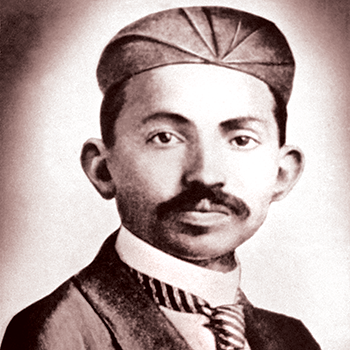Young advocate M.K. Gandhi emerged as a successful lawyer in South Africa. He ran a flourishing law firm, but political preoccupations eventually brought his legal work to a standstill. As Johannesburg’s only successful Indian attorney, as well as one of the most prominent Indians in the country, Gandhi’s services were in great demand. He held retainers from leading Indian traders, but his office also served poorer sections of the community. A series of anti-Indian laws brought him many clients. He built a lucrative practice which, at its peak, brought him £5 000 a year, but as passive resistance intensified, he was increasingly drawn into the political arena, to the detriment of the practice. Having refused to register under the Transvaal Asiatic Registration Act, Gandhi and twenty-six of his comrades were summoned to appear before the magistrate, Mr H. H. Jordan. The court ordered Gandhi to leave Transvaal within forty-eight hours. He did not do so and on 10 January 1908 he was arrested and again brought before Mr Jordan. Inside the crowded courtroom were hundreds of Indian as well as fellow legal practitioners.

